Raising a child who has JIA: Zoe and Mali’s story
18 March 2024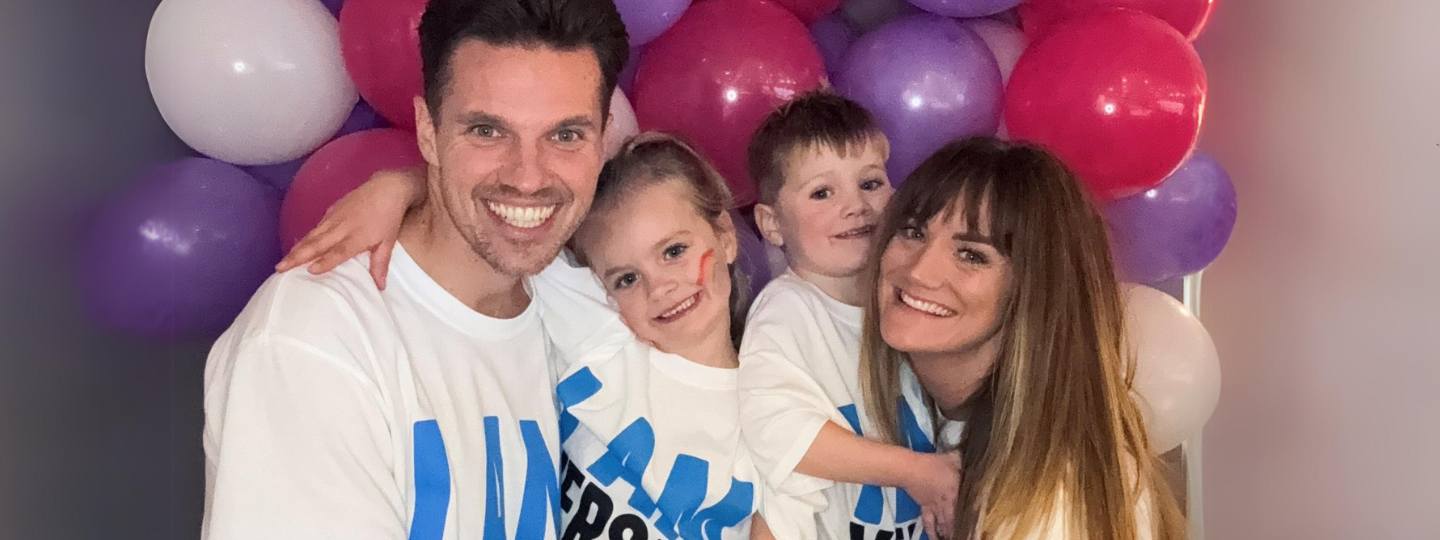
World yOung Rheumatic Diseases Day (WORD Day) takes place on the 18th of March every year. It is a day that aims to raise awareness and knowledge to support the early diagnosis of young rheumatic diseases.
Zoe, who is running the London Marathon for Versus Arthritis this year, cares deeply about raising awareness of young rheumatic diseases. This is because her six-year-old daughter Mali has juvenile idiopathic arthritis (JIA).
In anticipation of WORD Day, Zoe tells us what she and her family have been through since Mali’s diagnosis and shares her tips for parents and caregivers of children with arthritis.
Sign up to our newsletter
Mali’s JIA diagnosis
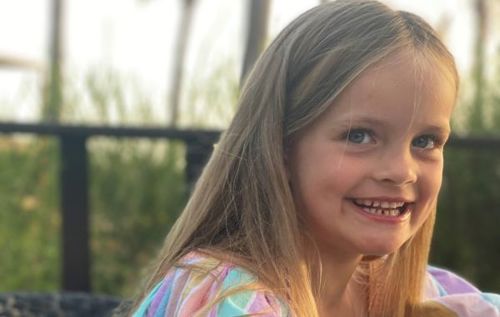 Zoe’s daughter Mali was diagnosed with JIA at just two years old.
Zoe’s daughter Mali was diagnosed with JIA at just two years old.
JIA starts before age 16 years, and happens when the immune system, which is the body’s natural self-defence system, attacks the body. This causes many symptoms including painful, stiff and swollen joints.
Zoe noticed that Mali was behaving unusually for a while before she got her diagnosis.
“She was limping and not using one of her legs properly,” says Zoe. “She was off her food, and she was so upset. I could tell something wasn’t right.”
Unfortunately, Mali’s diagnosis wasn’t as quick as Zoe would have liked.
“She was so little, and it was hard to see what was wrong,” says Zoe. “It took two months which, when you’re living that day in day out, is a very long period of time.”
The main aim of WORD Day is to support the early diagnosis of young rheumatic diseases, such as JIA. By raising the awareness and knowledge level of parents, doctors, primary practitioners, teachers and the general public, the hope is that this will speed up the diagnosis process and improve the level of treatment children like Mali receive.
Get involved in WORD Day 2024
Getting the right treatment plan for Mali
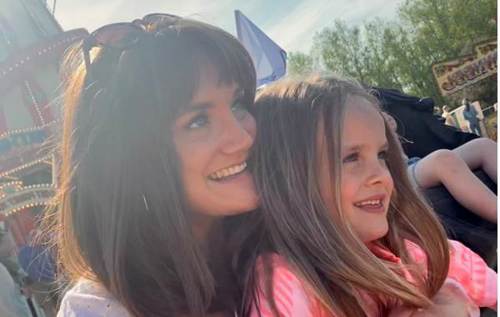
Once Mali was diagnosed with JIA, it was important to find the right treatment. While medication is important in managing the symptoms of JIA, it was tough for Zoe to see her child going through so much at such a young age.
“It was such a rollercoaster for our whole family,” says Zoe. “She was still so tiny and it was distressing for her, and us, to go through the various appointments and tests.”
Zoe has seen a huge change in Mali since she moved over to a biologic – a type of medication that targets specific parts of the immune system.
“She’s very sporty and you wouldn’t know anything was wrong with her,” says Zoe. “We’ve got her into a better place, she has tools and support to manage things a bit better.
“The NHS medical support we have has been amazing. In the early days when you don’t know what you’re doing, having specialist nurses who have got to know Mali as a person is incredible.”
But living with arthritis can be tough emotionally, especially for a young person. Zoe is making sure Mali has support for her mental health, too.
“Now we have the challenge of anxiety and her not liking the thought of arthritis always being there,” says Zoe. “We’re getting help from psychologists to help her deal with it.”
Adjusting to parenting a child with JIA
Having a child with JIA can have an emotional impact on the entire family. While Zoe stresses that this is Mali’s story, she acknowledges how difficult it can be for the parents and caregivers.
“It’s huge what you go through,” she says. “You’re learning as a parent how to support her to deal with this thing she’s going to potentially live with forever.”
Zoe has found making decisions on Mali’s behalf to be one of the biggest challenges.
“They’re wholly reliant on you,” she says. “You’re balancing the weight of responsibility and thinking about things that could have a long-term impact on their body and life, and could be damaging psychologically.
“It has been, and still is, an emotional rollercoaster as a parent.”
Zoe also worries about her son, who she fell pregnant with just before Mali was diagnosed with JIA. “You’re mindful that you don’t want to put all your attention on the one who has JIA, so you’re constantly trying to balance and get it right,” she says.
“You’re not given a manual on this stuff. Your priority is making sure your child is ok, so you have to push your own emotions to the side and just carry on.”
Running the London Marathon for Versus Arthritis
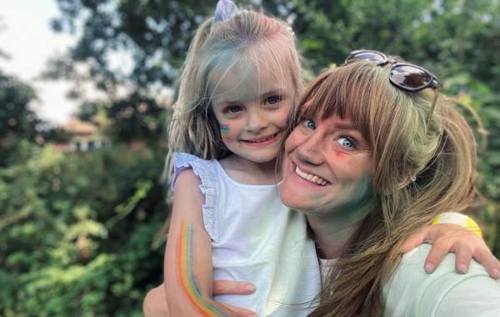
After an emotional four years, Zoe feels that she has finally started to process everything she and her family have been through.
“With my son’s arrival at the beginning of lockdown and us dealing with treatment for Mali, I think it’s taken until now for me to be able to pause and deal with my own emotions,” she says.
Part of processing means focussing more on self-care. Zoe finds running to be a great release – so much so that she decided to sign up to the London Marathon this year.
“Running is the one bit of time I get when I’m not working or not being a mum,” she says. “It has given me time to be on my own and process how I feel.”
Running the London Marathon for Versus Arthritis means a lot to Zoe. She’s doing it for Mali, and all the other families who have been impacted by JIA.
“I wanted to take the opportunity to do fun and exciting things for Mali that link with JIA,” says Zoe. “It’s all been scary needles and horrible things and suddenly I had this opportunity to do fun things with her to fundraise. She’s so involved, she’s coming along on the day, and she talks about it as her race, too.
“I don’t think many people have heard of JIA and that children can get arthritis. Imagine a world where there is a cure and children didn’t have to go through what they go through. That’s my main driver for raising awareness.”
Download our guide to fundraising
Zoe’s tips to other parents and caregivers
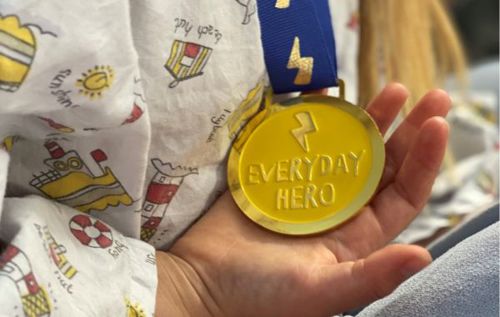
Zoe has some advice for other parents and caregivers of children with arthritis.
“Talk,” she says, “and look out for those support groups. I’ve met another family with a daughter who has JIA and even us messaging each other is so comforting.”
Zoe calls Mali’s JIA her “superpower”. She advises parents and caregivers of children with JIA to focus on the positives.
“Mali has all these amazing things she can do and when she becomes a teenager and goes into adulthood, she can use these things in her life and to support others,” says Zoe.
“It would be so easy to see it all as doom and gloom, but there’s always something good to come from things.”
The Versus Arthritis Young People and Families Service run activities and events that help children and other young people meet others with similar experiences. Find out what’s going on in your area or reach out to the team for more tips, one-to-one support or advice.
Read more about our Young People and Families Service